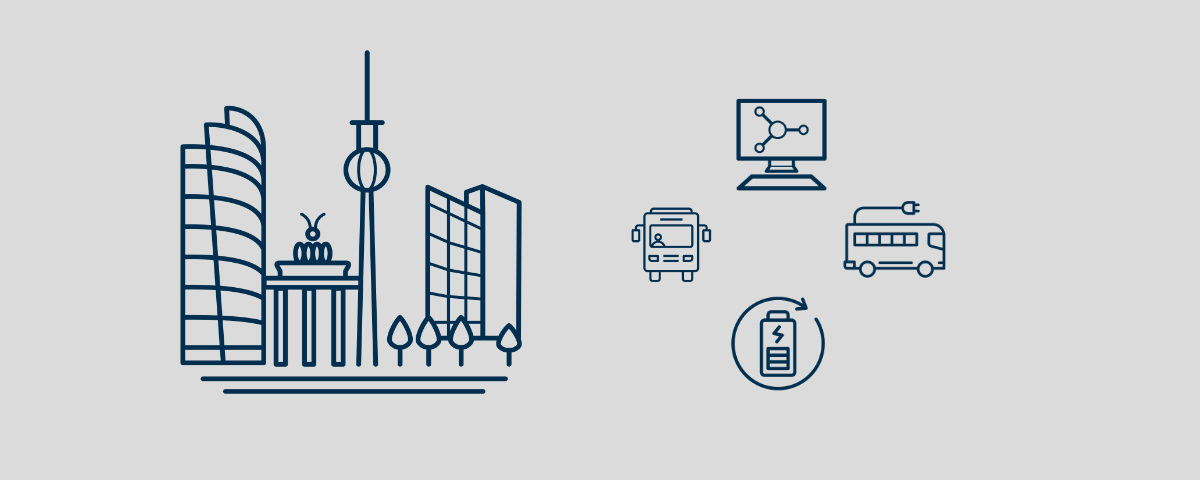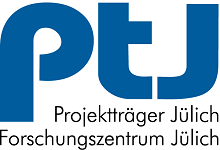Conflict, health, and electricity: An empirical assessment of the electrification of healthcare facilities in Yemen (Al-Akori et al. 2023)
3. January 2023
HyRECA – Study on the production potential of green hydrogen in Central Asia and establishment of a research network
16. January 2023E-bus 2030+ – Development and analysis of strategies for the complete decarbonization of Berlin´s bus transport by 2030

In this project, scientists from the RLI are working together with TU Berlin and Berliner Verkehrsbetriebe (BVG) to develop strategies for the complete decarbonization of Berlin´s bus transport by 2030 and beyond. For the switch to alternative drives, the project team is developing an open source software for the simulation and design of systems for electric buses (e-buses). The vehicle deployment in BVG's route network is very heterogeneous, as for example solo buses, articulated buses or double-deckers are used. In addition, other factors drive the complexity of the project, such as planned procurements of up to 250 vehicles per year, the reconstruction and new construction of depots, or the development of charging infrastructure in public spaces. These diverse conditions are ideal for developing software that can also be used in other cities and regions.
Software for the electrification of bus fleets
The scientists are developing strategies for the various parts of the overall e-bus system. To this end, the project team is bringing together existing tools from TU Berlin and RLI and develops them further. They are used, for example, for vehicle scheduling and the design of charging stations. The goal is to program a universally applicable, easy-to-use software that can be applied to practical issues of bus fleet electrification independently of the operator. BVG can use the software directly for planning. Feedback from the practical use case for the transport company in turn helps to improve the software so that it takes into account many different influencing factors of decarbonization.
Influencing factors and development paths for the E-bus system
In workshops and expert interviews, the project team will identify additional influencing factors for the E-bus system. In addition to vehicle technology, these include power grid, public space, and developments in politics and society. From these results, the scientists will derive development paths and comparative scenarios for the decarbonization of bus transport by 2030. These will be validated by means of exemplary simulations. In addition, a strategy for the complete electrification of the bus fleet will be developed.
Further development of existing open source tools
In this project, the RLI will further develop existing open source tools such as SpiceEV, for example, using the identified influencing factors and reprogramming individual modules. Among other things, a tool for the automated evaluation of end stops for high power charging will be developed and embedded in the software. In addition, new charging concepts and operator models will be developed and also integrated. For further development, the design of grid connections at terminal stops and depots as well as different charging strategies will also be considered. The RLI will continuously publish innovations to the open source tools.
Project period: December 2022 - November 2025
Software for the electrification of bus fleets
The scientists are developing strategies for the various parts of the overall e-bus system. To this end, the project team is bringing together existing tools from TU Berlin and RLI and develops them further. They are used, for example, for vehicle scheduling and the design of charging stations. The goal is to program a universally applicable, easy-to-use software that can be applied to practical issues of bus fleet electrification independently of the operator. BVG can use the software directly for planning. Feedback from the practical use case for the transport company in turn helps to improve the software so that it takes into account many different influencing factors of decarbonization.
Influencing factors and development paths for the E-bus system
In workshops and expert interviews, the project team will identify additional influencing factors for the E-bus system. In addition to vehicle technology, these include power grid, public space, and developments in politics and society. From these results, the scientists will derive development paths and comparative scenarios for the decarbonization of bus transport by 2030. These will be validated by means of exemplary simulations. In addition, a strategy for the complete electrification of the bus fleet will be developed.
Further development of existing open source tools
In this project, the RLI will further develop existing open source tools such as SpiceEV, for example, using the identified influencing factors and reprogramming individual modules. Among other things, a tool for the automated evaluation of end stops for high power charging will be developed and embedded in the software. In addition, new charging concepts and operator models will be developed and also integrated. For further development, the design of grid connections at terminal stops and depots as well as different charging strategies will also be considered. The RLI will continuously publish innovations to the open source tools.
Project period: December 2022 - November 2025
In this project, RLI assumes the following tasks:
- Identification of influencing factors for the E-bus system
- Derivation of development paths and comparison scenarios until 2030
- Coupling of RLI tools with tools of the TUB for the development of a common software platform for simulation and design of E-bus systems
- Integration of the BVG's circulation data into the tools
- Further development and continuous publication of existing open source tools
- Development of a tool for automated evaluation of terminal stops regarding the feasibility of building HPC
- Design of grid connections and investigation of charging strategies
- Development of novel charging concepts and operator models
Research and development projects within the framework of the Electromobility Funding Guideline of the

Coordinated by:

and

The research work at RLI is financially supported by Reiner Lemoine Stiftung.

Coordinated by:

and

The research work at RLI is financially supported by Reiner Lemoine Stiftung.








